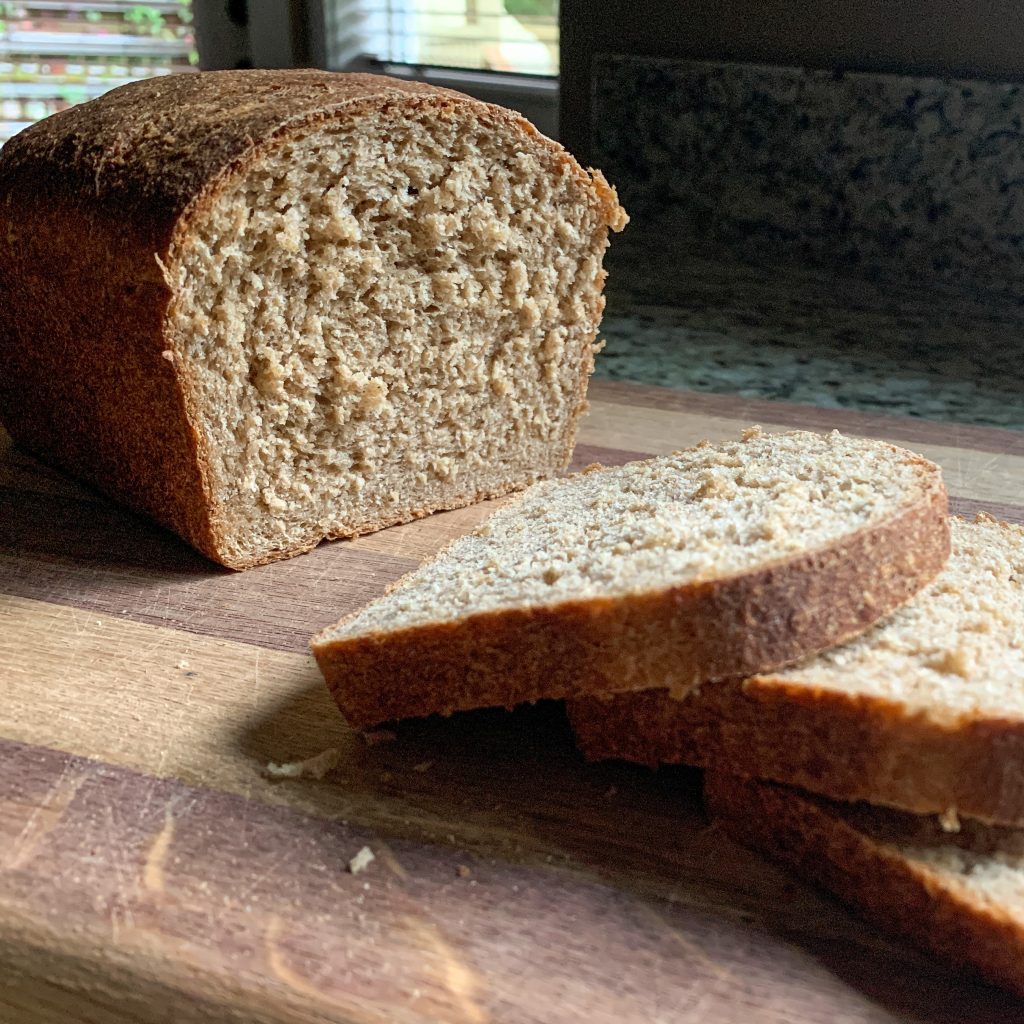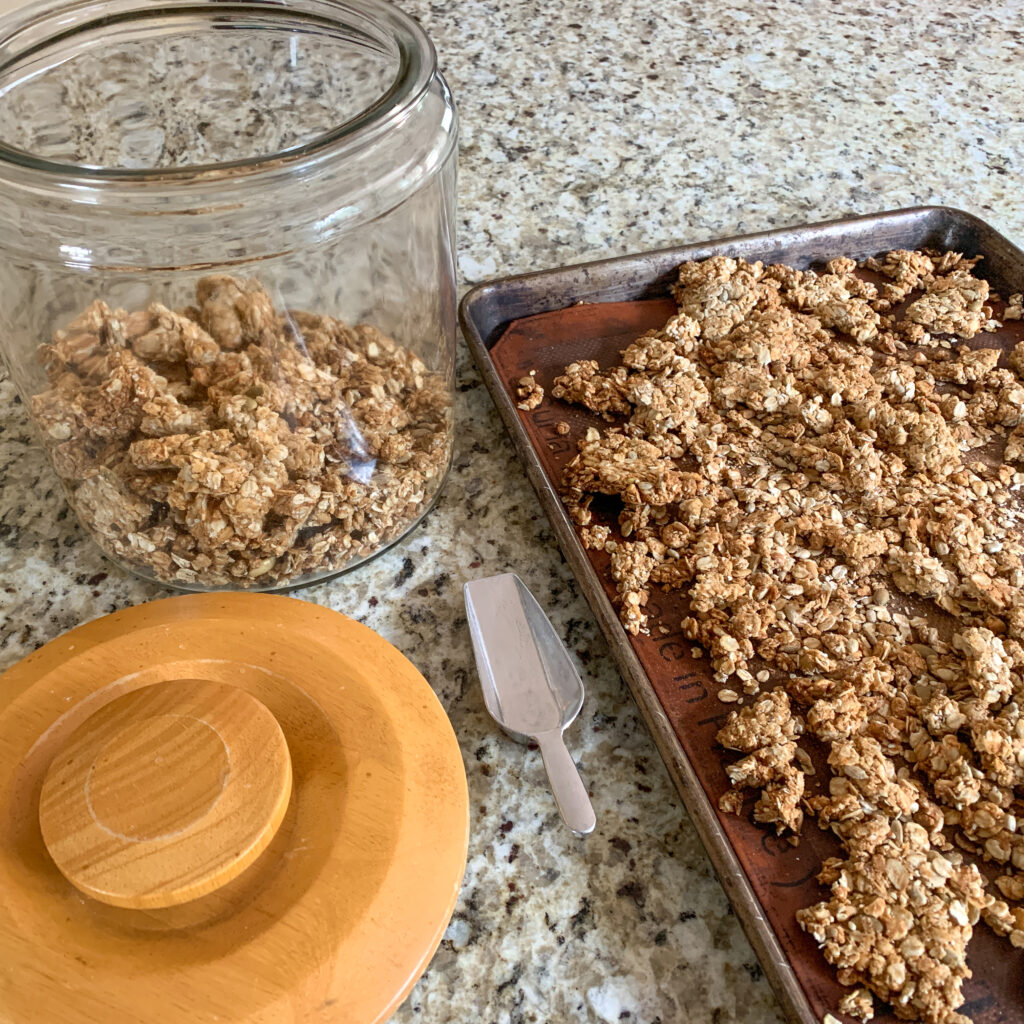Low Waste Remodeling
Things have been very busy here at the Lakehouse as we’ve been doing some remodeling. Growing up with a building contractor father, I know just how much waste there can be in home building and remodeling projects. Dad used to take us along on dump runs to help him unload a trailer full of construction debris. It wasn’t pretty and now that we’re trying to be as low waste as possible, I cringe at the thought of all that stuff we dumped. But times were different, there weren’t a lot of recycling options and we didn’t have the awareness we have now. However, a lot of things were reused back then and many tools/supplies were durable, not disposable as they are today. So I want to share some thoughts about low waste remodeling.
Utilizing Wasted Space in Your Home
Sometimes zero waste applies to your living space! What started all this was some frustration about wasted space in our pantry and Alan accidentally kicking empty glass jars amassed on the floor. We started talking about how to fix this storage problem, which lead to remodeling a huge amount of wasted space under our house.
One of the things that attracted us to this house was a huge unfinished crawl space. A large portion of it had 14-foot high ceiling clearance. Alan and I put some shelving on the walls, but the dirt floor made it impossible to store anything and it was even difficult to walk on. We don’t have a ton of stuff to store, but we wanted to have a place to keep camping gear, canning supplies, yard equipment, and have a workbench/shop area for making and repairing things.
Selecting a Contractor
Incorporating this space was way above our ability, so we interviewed contractors for help. At the top of our list for discussion was our low waste lifestyle, concern about minimizing construction debris, and desire to recycle and repurpose materials as much as possible. We went with a contractor Alan had used in the past, Tenhulzen Remodeling, who actually reused the roof of his house when adding a second floor addition. They lifted the whole roof off with a crane, placed it in the yard, and reinstalled it on the new section after it was framed up! They were very agreeable to our vision and worked with us to preserve, repurpose, and recycle as much as possible.

Roof recycling project, Tenhulzen Remodeling, 1992
Working with Existing Features
Because this is a utility/storage space for us, we were okay with keeping existing posts, HVAC supply and ducts, plumbing, and gas lines. This helped keep down construction waste. One drain line had to be moved beneath the floor, but otherwise we worked around utilities and structural components. The space is not heated, so HVAC wasn’t changed. The entrance door was moved and our contractor worked with our existing deck stairs to construct the new entry. They actually removed the stair railings intact and reused them, adjusting them to fit the new space. Unfortunately the old entrance door was rotted due to ground contact and we had to purchase a new one.
Finishing Out the Space
We’ve taken the rest of the remodel from here. Waste control continues to be a big consideration.
Painting
For flooring, we simply painted the underlayment with porch and patio paint and sprinkled with paint chips. Here’s how to control waste with painting:
- Wash brushes, rollers, paint trays instead of buying disposable or discarding
- Reuse paint tray liners
- Buy recycled paint. MetroPaint sells recycled paint in 20 different colors throughout Oregon, Washington, and Idaho!
- Purchase paint in recyclable metal cans, if possible
- If paint comes in plastic buckets, clean them out and reuse for gardening, other bucket needs
Lighting
We had a few plain lampholders on the ceiling that held single, exposed bulbs for lighting. Our electrician moved those into the new crawlspace to illuminate that area rather than buying new. For the new space, we purchased Commercial Electric 4-foot LED shop lights. You can find them at Home Depot, too. These lights are super cool—there are no mercury-laden fluorescent bulbs to replace and the bulbs are rated for 50,000 hours of continuous use! We’ll never have to replace a bulb and being in a shop space, not in continuous use, will last beyond our lifetimes. The fixtures are Energy Star rated and use only 35 watts each. They link together, if you want, and since they plug into outlets, not hard-wired, we can move them if we ever reconfigure the space later.
Some thoughts on lighting:
- Reuse fixtures if you can
- Purchase durable, low-energy fixtures
- Consider options you can move or reconfigure later if your needs change, like track lighting
Purchasing Options
As much as possible, we try to pick up used or low-packaging items.
Buy Nothing & Facebook Marketplace
I’ve mentioned Buy Nothing a couple times in past posts (Goodbye Garbage Can!, 19 Things You Should NOT Throw in Your Trash!). The Buy Nothing Project is an awesome resource for finding or donating free materials. The program uses Facebook groups set up for local areas for people to gift in their neighborhoods. You can find lots of amazing things through Buy Nothing, you just need to be patient. We’ve picked up heavy-duty shelving, cabinets, insulation, etc. from our local Buy Nothing group. Simply search for Buy Nothing in Facebook to find your nearest group. Note, you can only belong to one, the one that’s closest to your geographic location. This keeps the group size down so you have more of a chance to actually get something. Once the group gets too big, there’s just too many people vying for goods, so the group will split into a more manageable size.
We’ve also gifted leftover material on Buy Nothing, like a tube of adhesive we only needed a small amount from. We knew it would dry up before we ever had a chance to use it again.
You can also find things on Facebook Marketplace. Items here can be free (you can select to view only free listings) or be for sale. You can adjust the radius of where you are looking, which is a great way to find items in your local area. There’s lots of surplus building materials here and it’s great for finding small quantities, such as a couple rolls of insulation rather than buying an entire package.
Building Surplus/Salvage Shops
There are a lot of surplus/salvage shops out there where you can buy or donate/sell surplus construction items. Most communities have them. An internet search of “building surplus near me” may help you find shops near you. Here are some I’m aware of:
Habitat for Humanity ReStore (nationwide)
Hippo Hardware & Trading Company (Portland, Oregon)
Ballard Reuse (Seattle, Washington)
Northwest Building Salvage Network (Washington Puget Sound area)
Package-Free
Our local True Value/Ace Hardware has a large supply of loose nails, screws, etc. This is an awesome way to purchase things without packaging. I’ve been hard-pressed to find large quantities of loose framing nails like we used to be able to buy by the pound at hardware stores when I was a kid, but you may be able to find an independent hardware shop that still sells them that way.
Tools & Equipment
There are a lot of options for tools and equipment. You can rent, check out, or borrow things you need instead of buying new:
- Tool rental shops, including Home Depot
- Tool libraries, like these in King County, Washington
- Borrow from family or friends (just remember to clean and restock what you borrowed and be ready to repair/replace something if it breaks when you use it)
Recycling
While we work hard to not make waste, it is inevitable. We separate recyclable materials out of our construction debris. It’s a bit more time-consuming, but worth it to us.
Wood
Many communities have wood recycling programs that will take building materials. In fact, they often take lumber with nails, but you’ll need to check with them.
Drywall
Plasterboard, sheetrock, gypsum board is very recyclable, even with the paper backing! Scrap drywall is ground to make new sheets or fertilizer. Many companies will even take old sheetrock with nails or screws, but like wood, you’ll want to check. We’ll be taking our sheetrock scrap to DTG Recycling Group in Woodinville, Washington.
Metal
Metal scrap, including nails and screws, are recyclable. Many home recycling programs allow scrap metal in the co-mingled bins. Check with your service provider.
Years ago, I remodeled an older home and discovered that the HVAC ducts and plenum were all aluminum. Instead of taking the ducts that were removed to the dump, I took them to a metal recycler who paid me by the pound for all that scrap!
Plastic bags/sheeting
Some plastic bags/film are recyclable. We’re able to recycle the bags from insulation, fluorescent lighting packaging, etc. at our local grocery store. You can find a drop-off spot on the Plastic Film Recycling website.
Styrofoam
Unfortunately some things are still arriving in styrofoam. You’ll need to do a web search to find a recycler in your area. We take ours to a local Recology Store.
Paint
Paint can be recycled and ten states have recycling programs for latex and oil-based paints and stains. Washington state passed a paint recycling law last spring which is required to be fully on-board by November 30, 2020. Recology Stores in Washington are accepting paint already. Metro, in Multnomah County, Oregon, has been recycling latex paint for years.
It Just Takes a Little Bit More Time
It is possible to have a low-waste remodeling project. We think it’s worth spending a little more time to discuss low-waste with prospective contractors, search for low-waste or package-free options, clean and reuse durable goods, and separate recyclables for drop-off. You will encounter some trash that you just can’t avoid. Don’t beat yourself up. Know that you’re doing the best you can and are reducing your overall impact by making smart choices.
Do you like this post? Please share....
[mashshare]
If you liked this post, you might like one of these:
Categories:
Tags:

[Trī-māz-ing]
Cindy wants you to be Trimazing—three times better than amazing! After improving her health and fitness through plant-based nutrition, losing 60 pounds and becoming an adult-onset athlete, she retired from her 20-year firefighting career to help people just like you. She works with people and organizations so they can reach their health and wellness goals.
Cindy Thompson is a national board-certified Health and Wellness Coach, Lifestyle Medicine Coach, Master Vegan Lifestyle Coach and Educator, Fitness Nutrition Specialist, Behavior Change Specialist, and Fit2Thrive Firefighter Peer Fitness Trainer. She is a Food for Life Instructor with the Physicians Committee for Responsible Medicine, Rouxbe Plant-Based Professional, and Harvard Medical School Culinary Coach, teaching people how to prepare delicious, satisfying, and health-promoting meals.
She provides health and lifestyle coaching at Trimazing! Health & Lifestyle Coaching. Cindy can be reached at info@trimazing.com.
Subscribe to the Trimazing Blog
Receive occasional blog posts in your email inbox.
Subscribe to the Trimazing Blog
Receive occasional blog posts in your email inbox.































